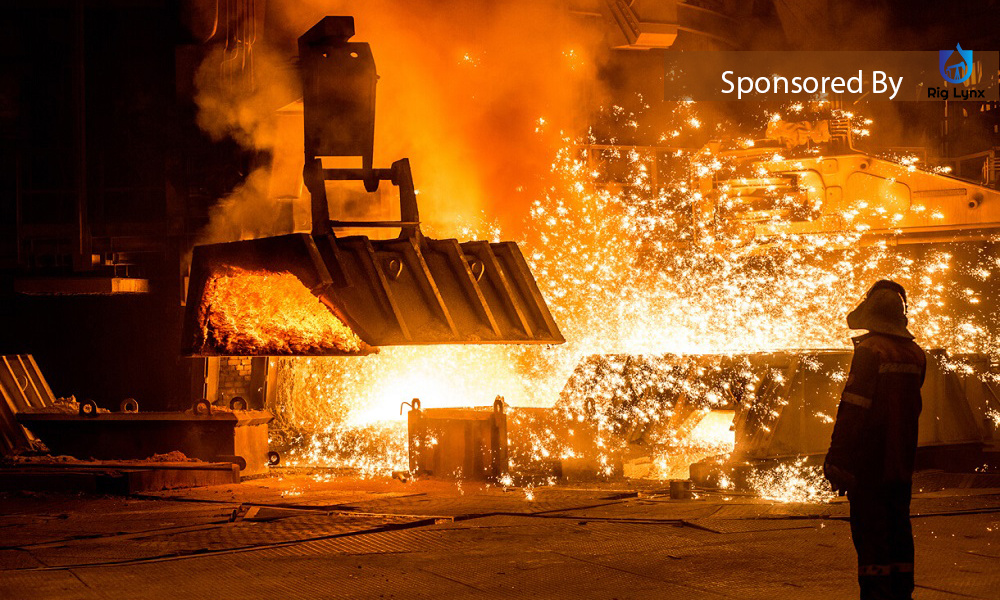
President Donald Trump’s administration has given the oil and gas sector its first waivers from a 25pc tariff on steel imports, after agreeing with Shell and Chevron that the specialty steel they were importing is not manufactured in the US.
The US Commerce Department today approved tariff exclusions for 2,760t of steel casing and production tubing that Shell said it will use when drilling wells in the US Gulf of Mexico. It also provided a tariff waiver to Chevron for 80t of corrosion-resistant stainless steel tubing. The exemptions will only last a year and are exclusive to the two companies.
The waivers mark a victory for the oil and gas industry, which is concerned the tariffs will raise costs. The Commerce Department has been working through a backlog of more than 20,000 steel tariff exclusion requests. The agency has processed a total of 280 requests since it began issuing waiver decisions on 21 June.
Commerce today separately rejected Shell’s requests for waivers on another 1,630t of steel products and rejected Chevron’s requests for waivers on 309t of steel tubing. The agency said the applications were incomplete but could be resubmitted. Shell and Chevron did not immediately respond for comment.
None of the tariff waivers processed today were subject to objections. That sets them apart from other more complicated oil and gas sector applications that have attracted protests from US steel companies that say they already make, or could start making, the products the companies are importing.
Kinder Morgan, for example, has requested a tariff waiver on 151,000t of steel for its $1.8bn Gulf Coast Express natural gas pipeline. That led to objections from US pipeline manufacturers Berg Steel Pipe and Stupp, which submitted competing bids on the project. Plains All American Pipeline’s request for a waiver on 155,500t of steel for a Permian basin oil pipeline has drawn objections from JSW Steel, Berg and Dura-Bond Industries. (continued on page 2)
Check out our other current stories, we dare you…
- Weatherford sale off 31 rigs to ADES
- Egypt signs up 3 new exploration agreements
- First Cobalt picks up 2 more rigs
<
Oil and gas companies are “cautiously optimistic†undisputed waiver requests will be approved but are “highly uncertain†what will happen with requests that received objections, an oil industry source said. The source said there should be a more rigorous process to verify that US steel companies making objections can quickly start to manufacture the products at issue.
US commerce secretary Wilbur Ross last month said there was a high probability his agency will approve “relatively few†waiver requests because many had no substance and others had “objections that are well grounded posted against them.†Commerce has not said how it intends to evaluate competing claims about whether a steel product is available in the US.
The steel tariffs are already starting to bite for the oil industry. BP chief executive Bob Dudley has said the tariffs could increase its costs by $100mn. That amount could be reduced depending on how the administration responds to its request for waivers on nearly 14,000t of steel imports. Shell, meanwhile, is waiting waiver decisions on another 28,700t of steel that would mostly be used for its proposed 107,000 b/d Falcon ethane pipeline in the Appalachian region.
Industry officials say the tariffs are still preferable to the administration’s efforts to establish import quotas for specific countries.
“What I am most concerned about is a quota that would come in and prevent me from buying the pipe,†Independent Petroleum Association of America vice president Lee Fuller said.
Shell and Chevron, in the tariff waivers approved today, said no US companies produce the type of corrosion-resistant steel they need that could survive extreme conditions of production wells. They also each made national security arguments in support of the requests.
“It does not serve the national security to delay or increase the cost of fuel extraction in the absence of domestic alternatives,†Shell said.
The US last week denied a request for a tariff exclusion for 135,000 t/y of steel tubing and casing that Borusan Mannesmann Pipe US said it would import from Turkey. Commerce said the imported products were manufactured in high enough volumes in the US.
Check out our other current stories, we dare you…


